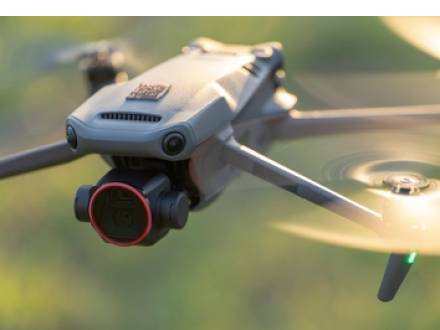
Illegal Deliveries: Mail, Drones, and Drops at Maryland Facilities
 Criminal laws in Maryland are now colliding with technology and the age of contactless delivery. Police must now deal with drones dropping cell phones and drugs into prison yards and near school fences. Maryland laws (Maryland Criminal Law Section 9-412 and 9-417) address the crime of delivering electronic devices and contraband into prohibited areas. Federal laws address using the mail to deliver contraband to a prison, but not specifically through the use of a drone.
Criminal laws in Maryland are now colliding with technology and the age of contactless delivery. Police must now deal with drones dropping cell phones and drugs into prison yards and near school fences. Maryland laws (Maryland Criminal Law Section 9-412 and 9-417) address the crime of delivering electronic devices and contraband into prohibited areas. Federal laws address using the mail to deliver contraband to a prison, but not specifically through the use of a drone.
Maryland SB 273 in 2024 prohibits the use of unmanned aircraft to photograph or record images of a correctional facility without authorization, while also making dropping contraband in a prison a misdemeanor offense. If you have been charged with using a drone, mail, or "dead drop" near a restricted area, consulting with an experienced Queen Anne’s County, MD criminal defense lawyer is the best step you can take to protect your future.
What Does Maryland Criminal Law Prohibit as Far as Delivering Drugs and Phones to Prisons?
Maryland law prohibits the delivery or attempted delivery of "contraband" to a correctional facility, jail, or school property. Contraband includes controlled substances, tobacco, weapons, phones, and even SIM cards. Maryland includes the term "communication devices" in the law, which can broaden the potential for criminal charges. The 2024 bill that was passed was in response to a growing number of issues across the state with drones dropping drugs, fentanyl, and cell phones into prison yards, most notably at Jessup and Hagerstown.
What Other Measures is Maryland Taking to Combat Drone Drops of Contraband?
Maryland correctional facilities are deploying anti-drone radar and geofencing systems to combat the use of drones to deliver contraband; however, these measures are not used at schools. Violations of the contraband drone drop laws can also trigger FAA regulations and 18 U.S.C. Section 1791 if the delivery crosses a state line.
Delivery of contraband near correctional properties may also be deemed "intent to smuggle" in some instances. Maryland law also prohibits drug distribution or attempted delivery within 1,000 feet of a school zone, which can carry enhanced penalties. USPS, private carrier, or even "peer" delivery can constitute drug distribution if intent is proven.
What Are the Penalties for Violations of Contraband Delivery by Drone or Mail in Prisons and Schools?
Delivering contraband to a prison typically results in a prison term of up to three years and a maximum fine of $1,000, with the potential for separate counts for each delivery or attempted delivery. More severe penalties can apply when the contraband delivered is a weapon. In this case, the offense becomes a felony, and a conviction could result in a ten-year prison sentence and a fine of up to $5,000.
Delivering drugs within 1,000 feet of a school is a felony offense, with up to 20 years in prison and a fine of up to $20,000, which can be imposed in addition to other penalties for the underlying drug offense – regardless of how the drugs are "delivered." The penalties for these criminal offenses are harsh and require a strong legal advocate.
Defenses and Legal Strategies for Charges of Delivering Drugs or Other Contraband to Schools or Prisons
The precise defense used in any case will depend on the specific facts and circumstances surrounding the offense, but some of the more common defenses used in these situations include:
- The defendant was unaware of the contents of the package or the proximity of the school or prison to the intended destination.
- There is no proof of delivery; the attempted delivery must show a completed act.
- The defense may challenge whether state law applies to federal airspace when a drone is used.
- There are chain of custody issues for drone delivery or intercepted mail.
Contact a Centreville, MD Criminal Defense Lawyer
If you are facing charges of using a drone, mail, or drop delivery to send or receive contraband near a Maryland school or correctional facility, a knowledgeable Queen Anne’s County, MD drug crime attorney from Henley & Henley, Attorneys at Law can help. We have two highly skilled lawyers with more than 50 years of combined legal experience. Call 410-280-0530 to schedule your initial attorney meeting.




